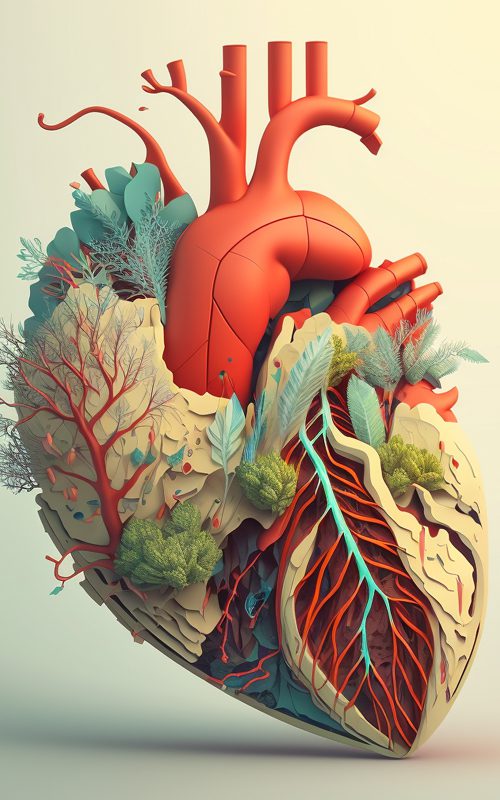Understanding high blood pressure: causes, symptoms and treatments
High blood pressure, also known as hypertension (elevated arterial tension), is a common condition that can have serious health consequences if left untreated. Find out about the causes, symptoms and treatments in this comprehensive guide.
WHAT IS HIGH BLOOD PRESSURE?
Hypertension is a condition in which the blood pressure in the arteries is abnormally high. This can cause damage to vital organs such as the heart, kidneys and brain. Blood pressure is the force of the blood against the walls of the arteries when the heart pumps blood.
Blood pressure is measured in two numbers: Systolic (top number) – The top number represents the pressure in the arteries when the heart beats and pushes blood into the arteries. Diastolic (lower number) – The lower number represents the pressure in the arteries between heartbeats, when the heart relaxes and fills with blood.
There are many causes of Hypertension, including stress, obesity, excessive salt intake and heredity. Symptoms can include headaches, dizziness and chest pain. Treatment includes lifestyle changes, medication and regular blood pressure checks.


THE CAUSES
The causes of Hypertension can be many and vary from person to person. Some common causes include stress, obesity, excessive salt intake, excessive alcohol intake, lack of exercise, smoking and heredity.
The following factors can increase your risk of developing Hypertension:
Age: High blood pressure becomes more common with age, especially in men over 65. However, high blood pressure can occur at any age.
Genetics: Your genes may play a role in determining whether you have high blood pressure. If one of your parents or siblings has high blood pressure, your risk of developing it increases.
Obesity: Being overweight significantly increases the risk of Hypertension because it increases the body’s demand for oxygen-rich blood. An overweight person also has a higher heart rate and a larger heart, which makes pumping more difficult than in someone who is not overweight.
Diabetes: People with diabetes are more likely to develop Hypertension than people without diabetes because they have insulin resistance, which causes extra fluid to be stored in the body due to the inability to use insulin properly to produce energy in cells throughout life.
It is important to understand the causes of your high blood pressure so that you can take the necessary steps to treat and prevent it.
THE SYMPTOMS
Symptoms can be difficult to recognise because they are often not visible. However, some signs include headache, dizziness, nausea, vomiting, chest pain and vision problems. It is important to monitor your blood pressure regularly and to contact your doctor if you experience any of these symptoms.
WHAT IS SYSTOLIC?
Systolic blood pressure is the first and highest number in your blood pressure reading. It is the pressure in the arteries when the heart beats (systole).
Systolic blood pressure is measured in two numbers. The first number represents the level of systolic pressure when the heart contracts. The second number represents the level of systolic pressure between heartbeats, when the heart relaxes between heartbeats (rest).
WHAT IS A DIASTOLIC?
Diastolic blood pressure is the second number in a blood pressure measurement. It is usually the lowest number in a systolic/diastolic blood pressure reading.
Diastolic blood pressure (also called diastole) is the pressure in the arteries when the heart relaxes between beats and fills with blood. This is the lowest blood pressure reading.
TREATMENTS FOR HIGH BLOOD PRESSURE
Treatments for this condition may vary depending on the severity of the condition and associated risk factors. Lifestyle changes, such as regular exercise, a healthy diet and reducing salt intake, can help lower blood pressure. Medications such as diuretics and beta-blockers may also be prescribed to help control blood pressure. It is important to follow your doctor’s recommendations to effectively manage this condition.
HOW CAN Hypertension BE PREVENTED?
Although some people are more likely to develop high blood pressure due to genetic factors, there are steps everyone can take to prevent the condition. These include maintaining a healthy weight, taking regular exercise, eating a healthy diet and reducing salt intake. It is also important to limit alcohol consumption and not to smoke. If you have a family history of high blood pressure, it is important to monitor your blood pressure regularly and see your doctor if you notice any symptoms.


